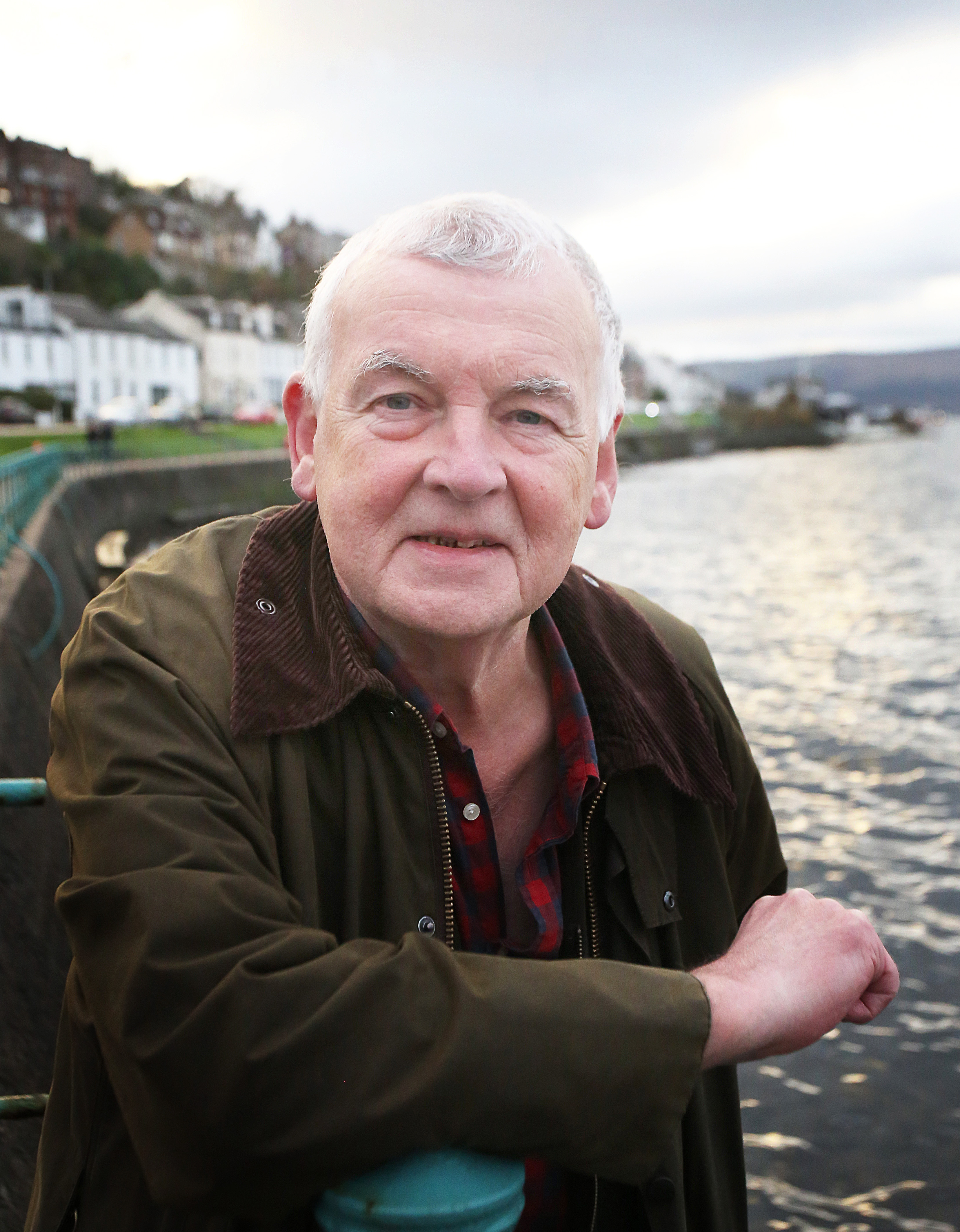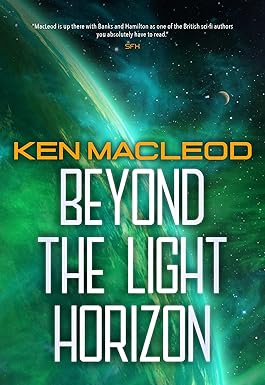Interview with Ken MacLeod on his novel Beyond the Light Horizon
We emailed with Ken MacLeod about his new novel Beyond the Light Horizon and discussed his early experience with science fiction, what lead him to writing science fiction, and the culmination of his lightspeed trilogy.
Tell us about yourself. What is your background? How did you get here in your life?
I read a lot as a child and came across science fiction in my early teens, and was hooked. Reading SF convinced me that I should try to be a scientist, which I wasn’t temperamentally well suited to as it turned out. I ended up with a Zoology degree, and a very belated M.Phil in biomechanics years later, by which time I had a wife and family and a job as a programmer. In the 1980s IT was full of people with science degrees who couldn’t get jobs in science, or engineering graduates who were lured by the much better pay in the City of London for people with mathematical and logical smarts. These became the rocket scientists who designed the financial instruments that in 2008 blew up the world economy. But before doing that they pulled up the pay of programmers in the rest of London, and I benefited from that.
I had known Iain Banks since high school, and he gave me to understand he was a bit tired of hearing about novels I was going to write, so in 1987 I started my first novel, The Star Fraction, which went through several drafts before it was published in 1995. When I got my second two-book contract I went full-time, and have been doing so ever since.
What brought you to writing hard science fiction?
It’s what I grew up on, I suppose. I can enjoy fantasy and the more fantastical kind of SF, slipstream and so on, but for my own writing I nearly always need a grain of scientific truth to accrete the story around.
Why did you write this book? Are there any real-world events that were the inspiration for the book?
Looking through old notebooks, I found traces of an idea I first had way back in the 1970s: near-future FTL, combined with some kind of revolutionary situation. I thought I could make something of that. It wasn’t inspired by any specific events, just by the world that may be coming into shape now.
Do you identify any intentional themes or important moral or philosophical elements of your book? If so, tell us about them.
The trilogy as a whole, including this book, deals with themes such as AI, evolution, alien intelligence and the Fermi paradox, philosophical zombies, conspiracy, and socialism.
What is the general emotional atmosphere of the book? What do you want your readers to feel at the end of the story?
The general emotional atmosphere is hopeful, with some dark and sad moments. The main thing I’d like readers to feel at the end of this book is satisfaction with the ending!
What sequence in the book was the most challenging to write, outline, or to figure out?
There are various complicated moves of spacecraft, troop deployments, and political intrigues which took quite a bit of choreographing.
How do the events, characters, or even individual scenes relate to your own life?
Barely at all, though some of it is set in and around the town where I live, and on the stretch of water in front of my window. I see nuclear submarines passing and it always makes me think that any one of them could end the world we know in a few hours.
What science and technology are most critical to your novel? Explain how and why they are critical.
Apart from the FTL drives … Advances in AI, robotics, prosthetics, and 3D printing are taken for granted in world where there are human-passing robots (which aren’t a theme, but one such robot is a character) and are critical to many of the industrial processes described or implied. Materials science is crucial to the Venus cloud colony, and the Venus Space Station, and of course to the Venus descent suit. There’s a lot of embedded AI: each Great Power has its own always-to-hand pervasive AI, which people interact with like we now do with Alexa and the like.
What elements of this book can be considered hard science fiction, which elements are more fantastic?
All of the above are in principle achievable with feasible developments of existing technology. The FTL drives are very much not, and the alien intelligence of the Fermi – a superluminally connected and very ancient entity – is completely outside known physics.
Are those science fiction elements based in any real-world research? Is so can you describe it (or provide links to the research / articles on the subject?)
I did a lot of research on Venus cloud colonies, mainly by reading this (PDF) free online book.
What is the catalyst/inciting event for the story in your novel?
The inciting event for this particular novel is that John Grant finds himself displaced in time, and then very far removed in space, and encounters further complications as he makes his way back.
How do you define "hard" science fiction?
SF that respects known science, even if it includes speculative elements such as FTL or aliens, and that in some way depends on it – rather than on, says, sociological extrapolation.
When you look at the current events of our world today, where do you see hope?
Mainly in the increasing awareness that a lot is basically wrong with the world, and the search for ways to change it.
Why do you write SF rather than another genre, or mainstream literary fiction?
Believe me, I would if I could!
Ken MacLeod was born on the Isle of Lewis and now lives in Gourock, Scotland. He has a postgraduate degree in biomechanics and worked for some years in IT. Since 1997 he has been a full-time writer. He is the author of twenty novels, from The Star Fraction (1995) to Beyond the Light Horizon (2024), and many articles and short stories. He has won three BSFA awards and three Prometheus Awards, and been short-listed for the Clarke and Hugo Awards.
He was a Writer in Residence at the ESRC Genomics Policy and Research Forum at Edinburgh University, and Writer in Residence for the MA Creative Writing course at Edinburgh Napier University. He has taught science fiction writing at Arvon, Moniack Mhor, and Clarion West.

